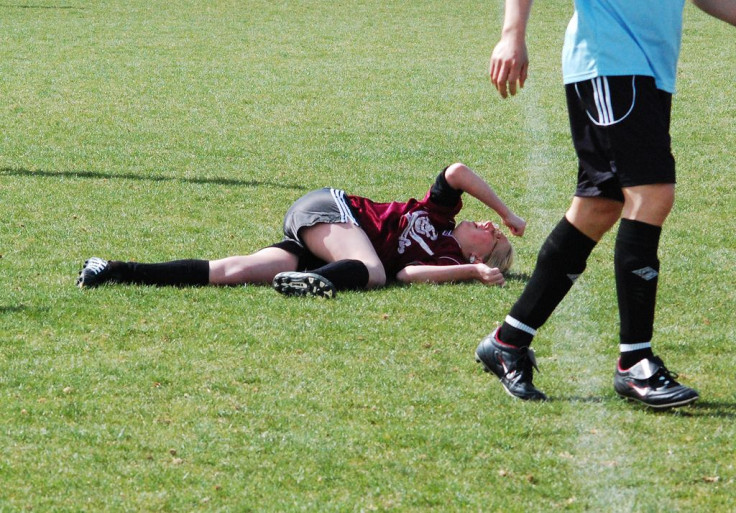Concussion Patients Have Brain Degeneration Similar To Alzheimer's Dementia

Mild traumatic brain injury due to concussions affects more that 1.7 million Americans each year. Given that 15 percent of people who experience these brain injuries continuously suffer from abnormal brain function for years afterward, scientists set out to find a link between neurodegenerative disorders and other long-term brain conditions, such as dementia.
A concussion is a minor brain injury after a fall, car accident, or any other injury to the head. they are common amig athletes, whose bodies are subject to the roughery of other players.
In the study, 64 concussive patients were compared to 15 normal patients. Brain scans using magnetic resonance imaging technology (MRI) compared the state of the concussive and normal patients. During the MRIs, researchers found that the concussive patients had more brain abnormalities than the normal patients.
They noted that 34 of the 64 patients who had had a concussion experienced sleep and wake disturbances, meaning that could not stay asleep or simply could not fall asleep. This was not attributed to alterations in brain structure and the integrity of their white matter, though it was notable, as concussive symptoms are thought to go away anywhere between 10 days and 3 months, while this symptom stuck around. Evaluations were done an average of 70 days after trauma, when symptoms would normally have cleared up.
They found that the patients who experienced concussions had portions of their white and gray matter of the brain clustered together in areas where they should not have been. This damaged the integrity of the brain's structure, which can lead to neurodegeneration characteristic of serious neurodegenerative disorders such as Alzheimer's.
It is known that constant brain trauma can lead to neurodegeneration. However this finding indicated that mild trauma, instead of repetitive trauma, to the brain can have similar effects. The researchers have noted that the degeneration that occurs to post-concussive brains is similar to what occurs in the early stages of Alzheimer's related dementia.
In Alzheimer's dementia, the brain's neurons stop communicating effectively. The neuronal connections between cells physically break down, as well as the tracks between neurons on which the messages can be relayed. This break down leads to cognitive impairment manifested as forgetfulness, characteristic of Alzheimer's and other forms of dementia.
The results seen in many of the post-concussion patients are similar to the early stages of Alzheimer's, indicating that those suffering a concussion, though mild, still have an increased risk of developing Alzheimer's related dementia. The key here is that the damage and neurological degeneration happens in the same way. The core of Alzheimer's is that the brain becomes damaged. If one suffers a brain injury, it can speed up the process of Alzheimer's formation in the body.
Alzheimer's disease currently has no cure. It isn't likely that Alzheimer's develops right after a concussion, but the researchers state that further neurodegeneration leading to Alzheimer's can occur after trauma since the trauma clearly alters brain structures vital to thought processes and normal function.
Dr. Saeed Fakhran,assistant professor of radiology in the Division of Neuroradiology at the University of Pittsburgh School of Medicine and leader of this study said, "The first step in developing a treatment for any disease is understanding what causes it ... If we can prove a link, or even a common pathway, between MTBI [concussions] and Alzheimer's, this could potentially lead to treatment strategies that would be potentially efficacious in treating both diseases."
Both the treatment of concusisons and neurodegenerative diseases could be improved by this linkage.
Source: Fakhran S, Yaeger K, Alhilali L. Symptomatic White Matter Changes in Mild TRaumatic Brain Injury Resemble Pathologic Features of Early Alzheimer Dementia. Radiology. 2013.



























